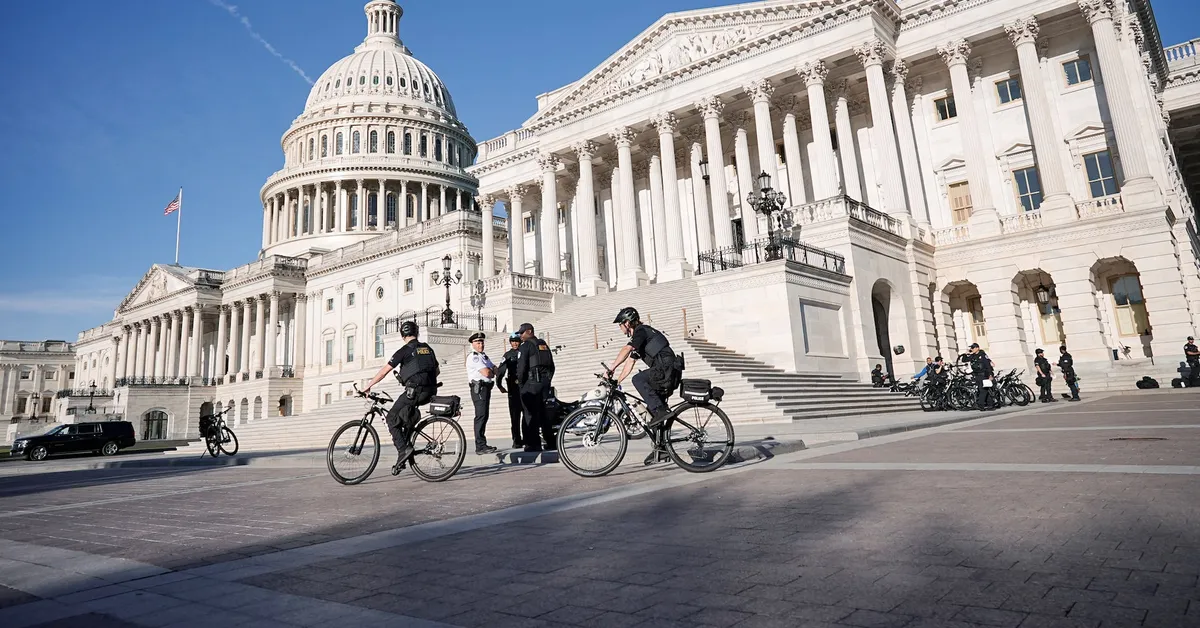
The Republican-controlled U.S. House of Representatives is gearing up for a crucial vote on President Donald Trump's expansive tax and spending bill in the early hours of Thursday. This comes after weeks of internal divisions within the party regarding the depth of proposed spending cuts. The legislation aims to extend Trump's popular 2017 tax cuts, introduce new tax breaks for tipped income and auto loans, eliminate numerous green-energy subsidies, and increase funding for military and immigration enforcement. Additionally, it seeks to tighten eligibility for vital food and health programs that serve millions of low-income Americans.
According to the nonpartisan Congressional Budget Office, this bill could add a staggering $3.8 trillion to the existing $36.2 trillion U.S. debt over the next decade. As lawmakers get ready to vote on whether to open debate on this controversial legislation, the outcome remains uncertain. The Republican majority in the House stands at a slim 220-212, raising concerns about whether House Speaker Mike Johnson can rally enough support from his own party, especially in light of strong opposition from Democrats.
The Republican Party is experiencing significant divisions regarding the bill, which has led to questions about their ability to present a united front against the unanimous dissent from Democrats. Following a prior setback in a congressional committee, the bill was eventually cleared by another panel after a lengthy 22-hour session. During this session, Democrats proposed more than 520 amendments in an effort to modify the legislation, but their attempts were largely unsuccessful. Democratic Representative Jim McGovern criticized the bill, calling it a “tax scam” aimed at benefitting the wealthiest Americans.
After a White House meeting involving Johnson, Trump, and conservative Republicans, an amendment package was introduced to address some concerns. This package includes imposing stricter work requirements for the Medicaid program starting in 2026, two years earlier than originally proposed, along with penalties for states that choose to expand Medicaid in the future. Additionally, it raises the amount of state and local taxes eligible for federal income tax deductions.
The urgency of this vote is further compounded by the recent downgrade of the U.S. government's credit rating by Moody's, which cited the country's escalating debt as a primary concern. As a result, U.S. stocks experienced a decline amid worries about the growing financial burden. Should the bill pass, it would meet Johnson's self-imposed deadline to advance the legislation before the upcoming Memorial Day holiday. However, lawmakers are also bracing for a more critical deadline this summer, when the Treasury Department will exhaust its funds unless Congress raises the debt ceiling, a situation that could lead to a catastrophic default.
Dubbed a “big, beautiful bill” by Trump, the proposed legislation aims to increase the debt limit by $4 trillion. Despite skepticism from some Republican lawmakers regarding the projections made by nonpartisan analysts, they argue that the bill will eventually pay for itself through economic growth stimulation. This mirrors the claims made during the passage of Trump's initial tax cuts in 2017, which the CBO later estimated would increase the federal deficit by nearly $1.9 trillion over a decade, even after accounting for potential positive economic effects.